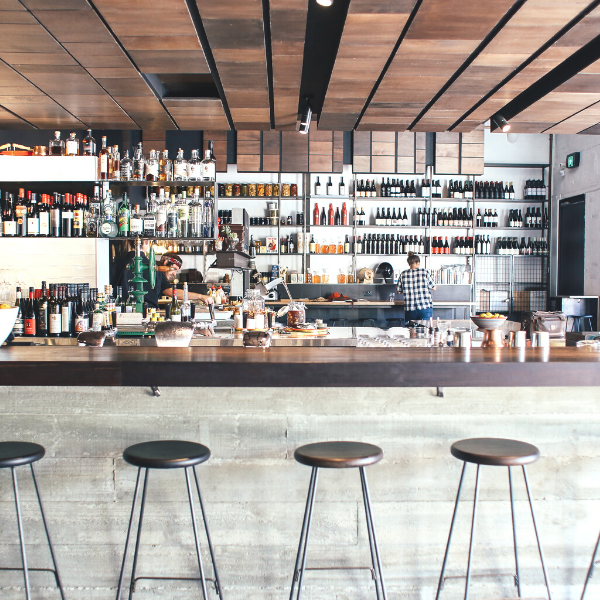As part of Governor Mike DeWine’s plan for reopening Ohio businesses forced to close due to COVID-19, bars and restaurants were permitted to open their patios for dining beginning May 15 under strict social distancing requirements. These include spacing out tables at least six feet apart, limiting the number of customers on premise, and having all customers seated while eating food and drinking alcoholic beverages.
Following photos and reports that some patios were overcrowded and, therefore, unable to adhere to social distancing guidelines, Governor DeWine acted swiftly this week. He is taking current law enforcement officers from across the state and making them agents of the Ohio Department of Public Safety Investigative Unit (“IOU”). These agents will perform compliance checks on crowded bars and restaurants to ensure that they maintain compliance with Ohio’s mandatory social distancing guidelines for reopening which can be found here: https://coronavirus.ohio.gov/static/publicorders/Directors-Order-Dine-Safe-Ohio.pdf.
If an agent from the IOU determines that an establishment is in violation of the guidelines, a liquor citation may be issued which will result in a hearing before the Liquor Control Commission (“Commission”). The Commission has the authority to suspend or revoke the establishment’s liquor permit. Should the permit be revoked, the establishment will be unable to obtain a new permit for one year pursuant to the Ohio Administrative Code. Further, a violation of the Director’s Dine Safe Order is a second-degree misdemeanor and, if found guilty, the establishment and/or the owner could be subject to a fine of not more than $750 or not more than 90 days in jail, or both.
Considering the backlash that some bars and restaurants have received based on perceived failures to implement social distancing rules, it is important to be proactive if your business has or intends to reopen. As noted, it is the establishment’s obligation to limit the number of customers so that it can maintain control of its premises. Should a customer become unwilling to adhere to the social distancing guidelines, the establishment may ask the patron to leave and, if the patron refuses to leave, the establishment should contact its local police department. Administrative penalties are entirely avoidable if the proper precautions are taken.
Further, many establishments are seeking ways to expand their outdoor dining facilities. Any expansion of the permit premises must be approved by the Ohio Division of Liquor Control (“DOLC”). The permitholder must file form DLC 4248, Request for Expansion of Permit Premises, with the DOLC. An investigator from the Investigative Unit will inspect the expansion and submit a report to the DOLC. It will then either grant or deny the request or provide further guidance to the permitholder for the Expansion Request to be granted. No alcoholic beverages may be sold in the expanded area until the Expansion Request is granted.
Given the fluidity of the current situation and the complexity of some of these unprecedented challenges, restaurant owners should seek experienced legal counsel who can help advise on the best way to pursue required expansion permits and/or advocate for the business should it receive a liquor citation.
Author
-

Charles A. Nemer
Charles Nemer is a Principal at McCarthy Lebit with a diverse practice focusing mainly on municipal law, land use and development issues, title insurance defense, commercial foreclosures, receivership practice, real estate litigation, business transactions, real estate acquisitions and financing, as well as all areas pertaining to liquor law. Learn more about Charles and his practice.
